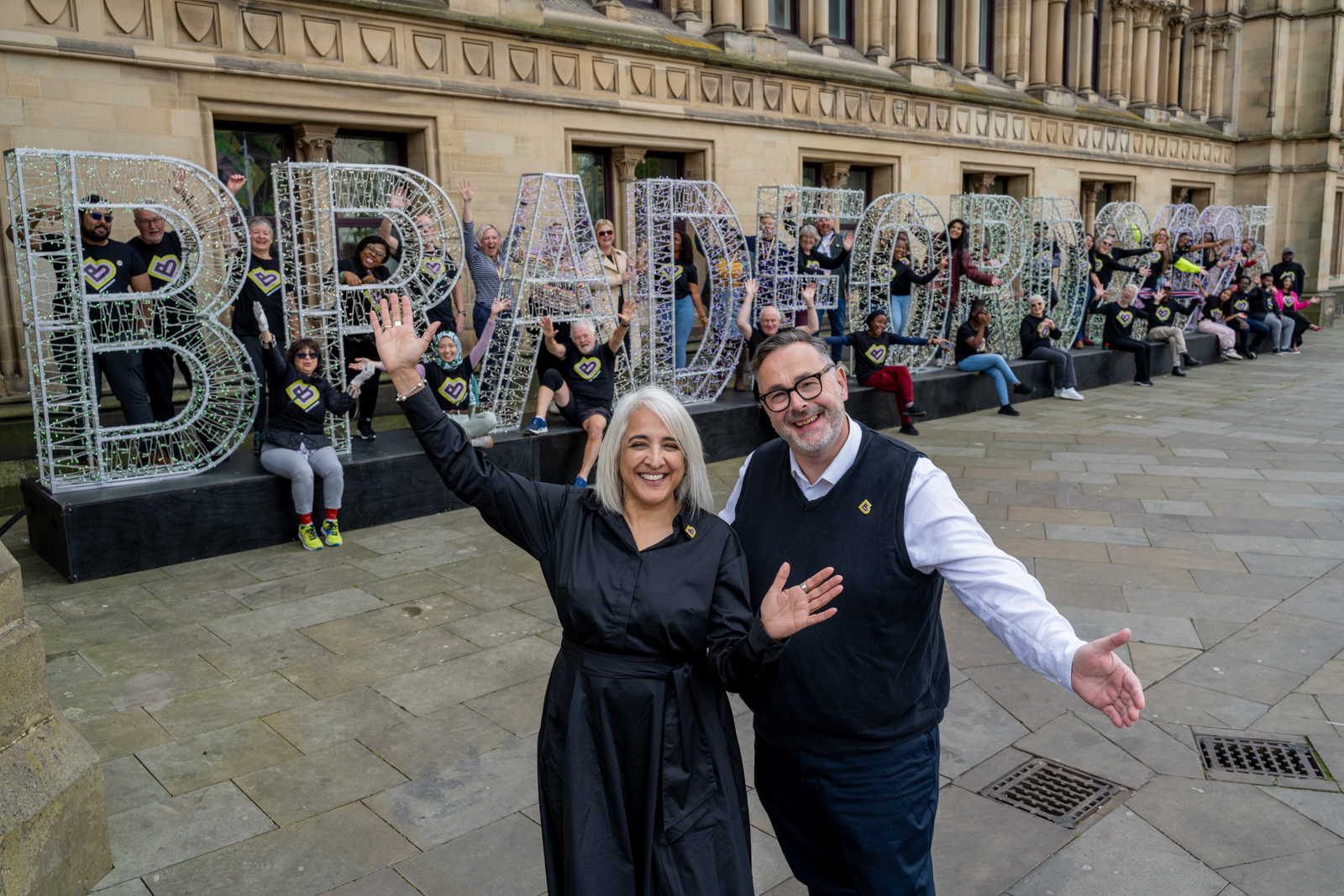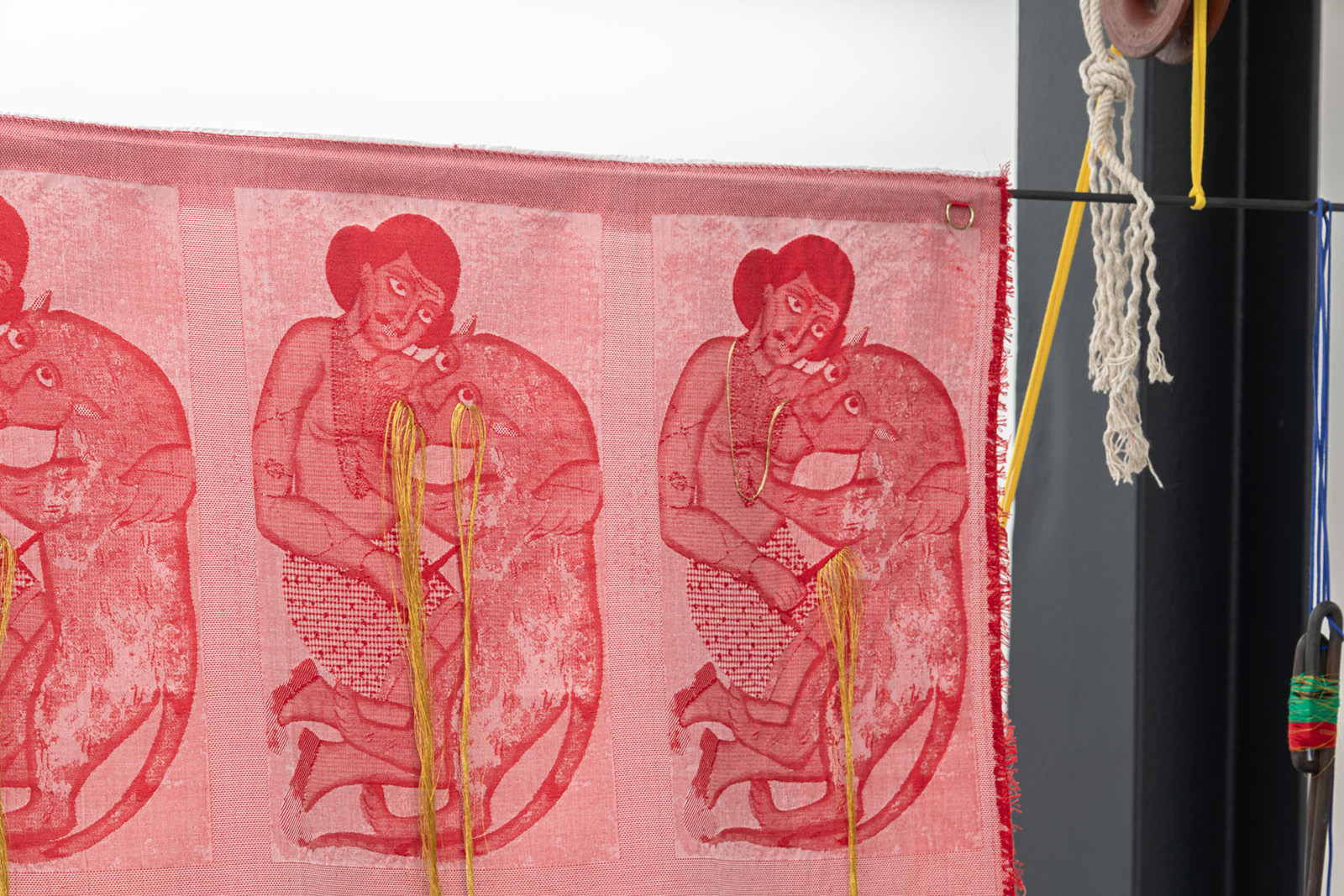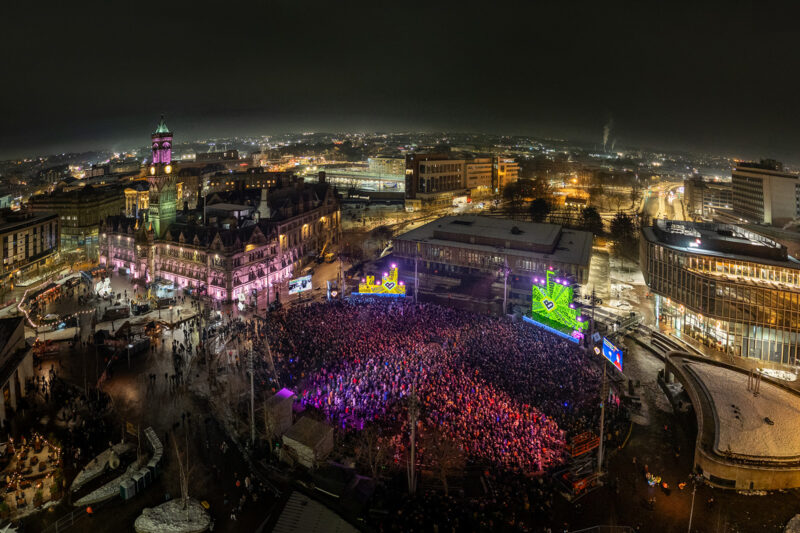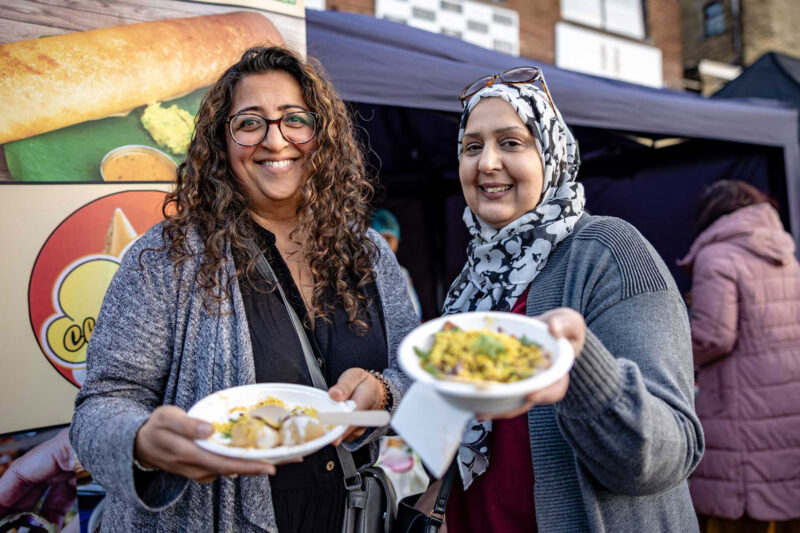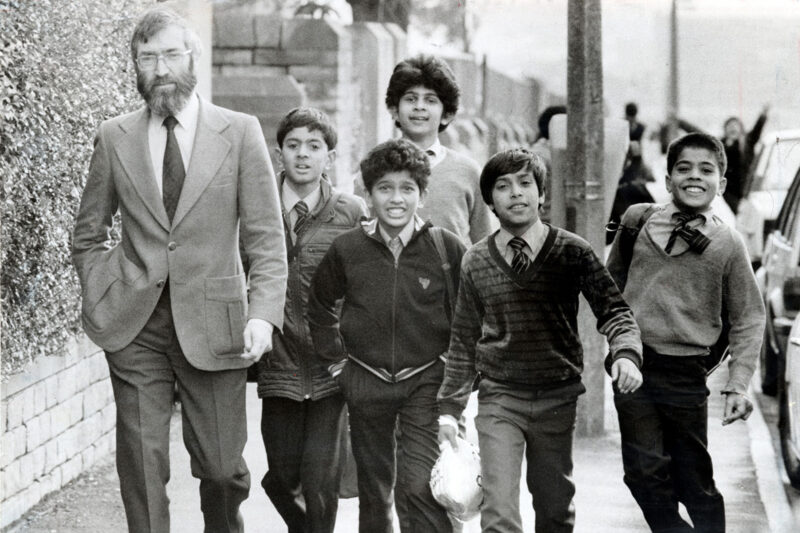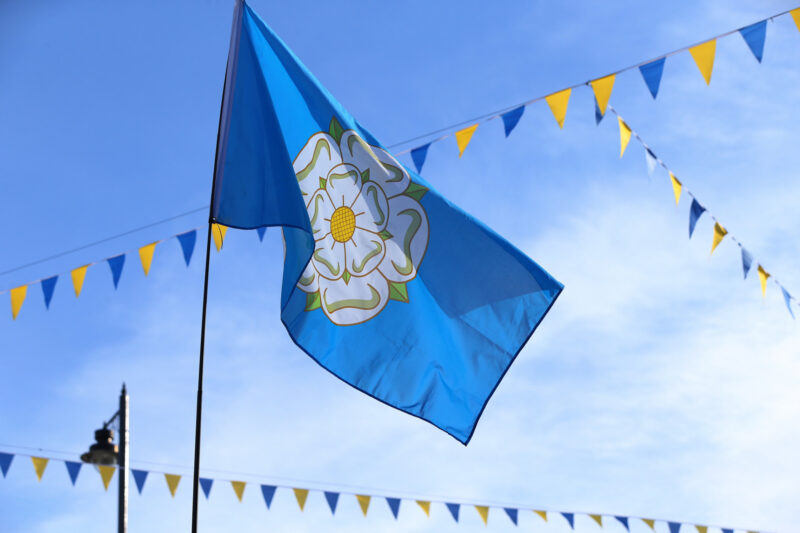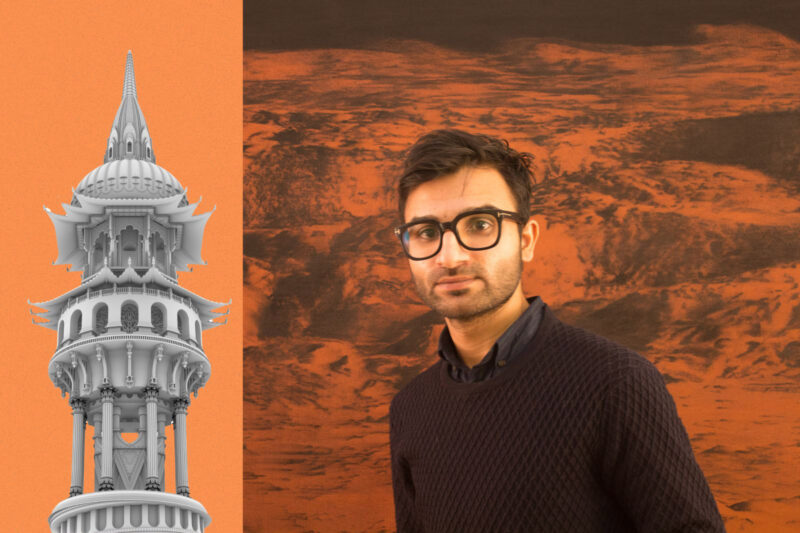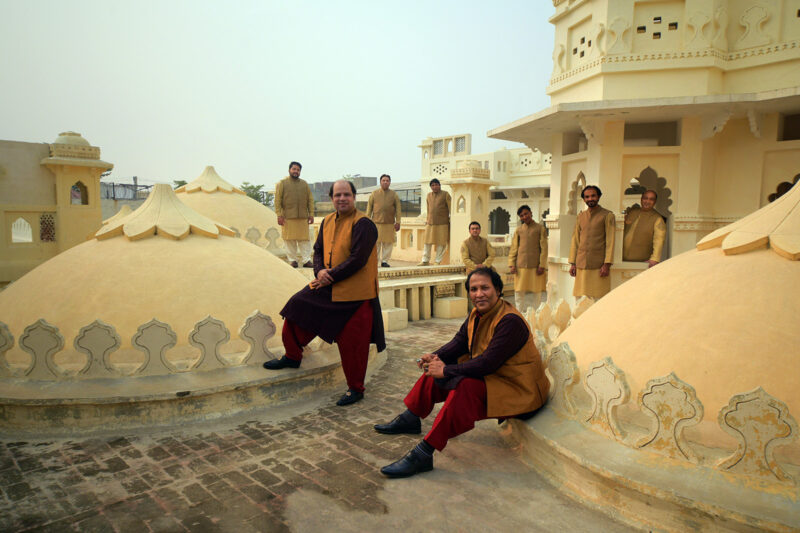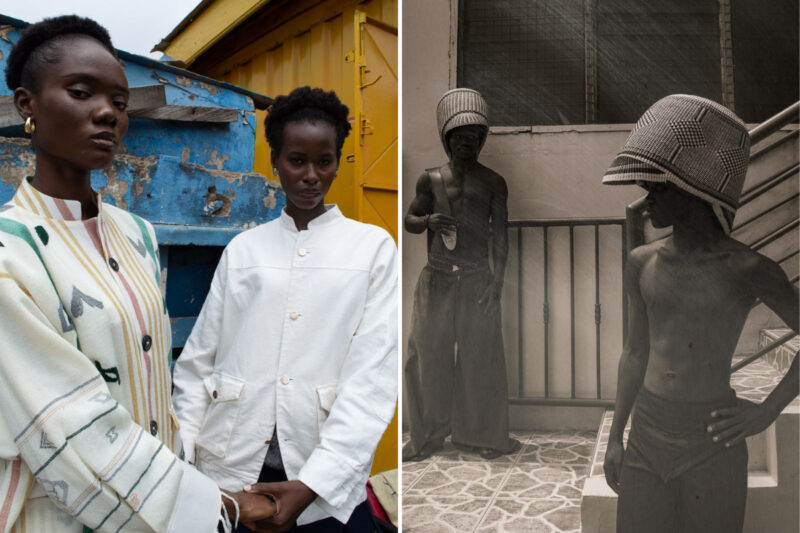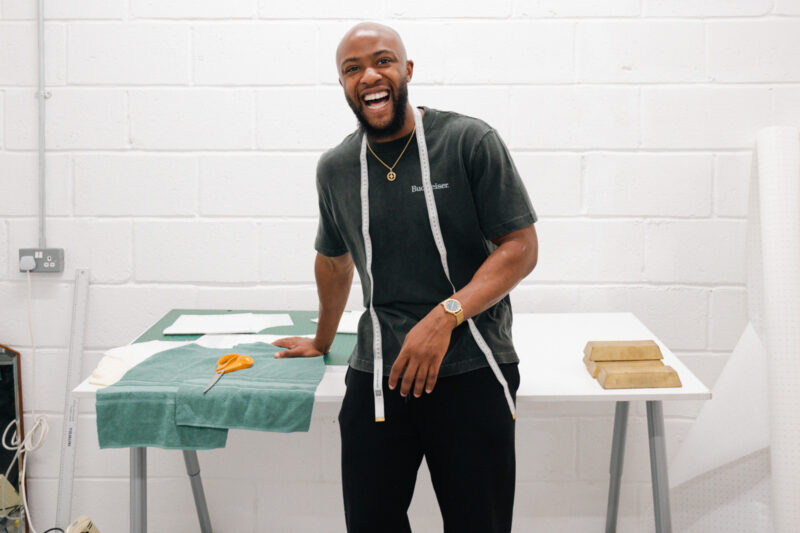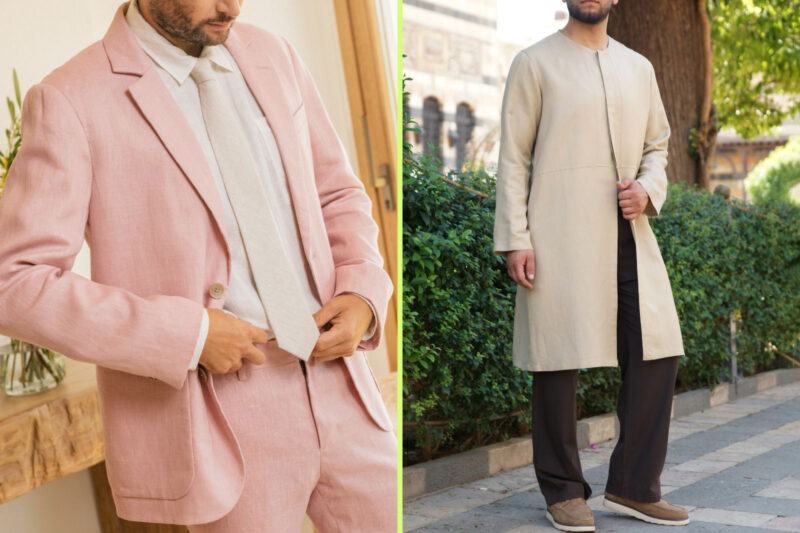How Bradford’s South Asian tailors became part of the city’s fabric
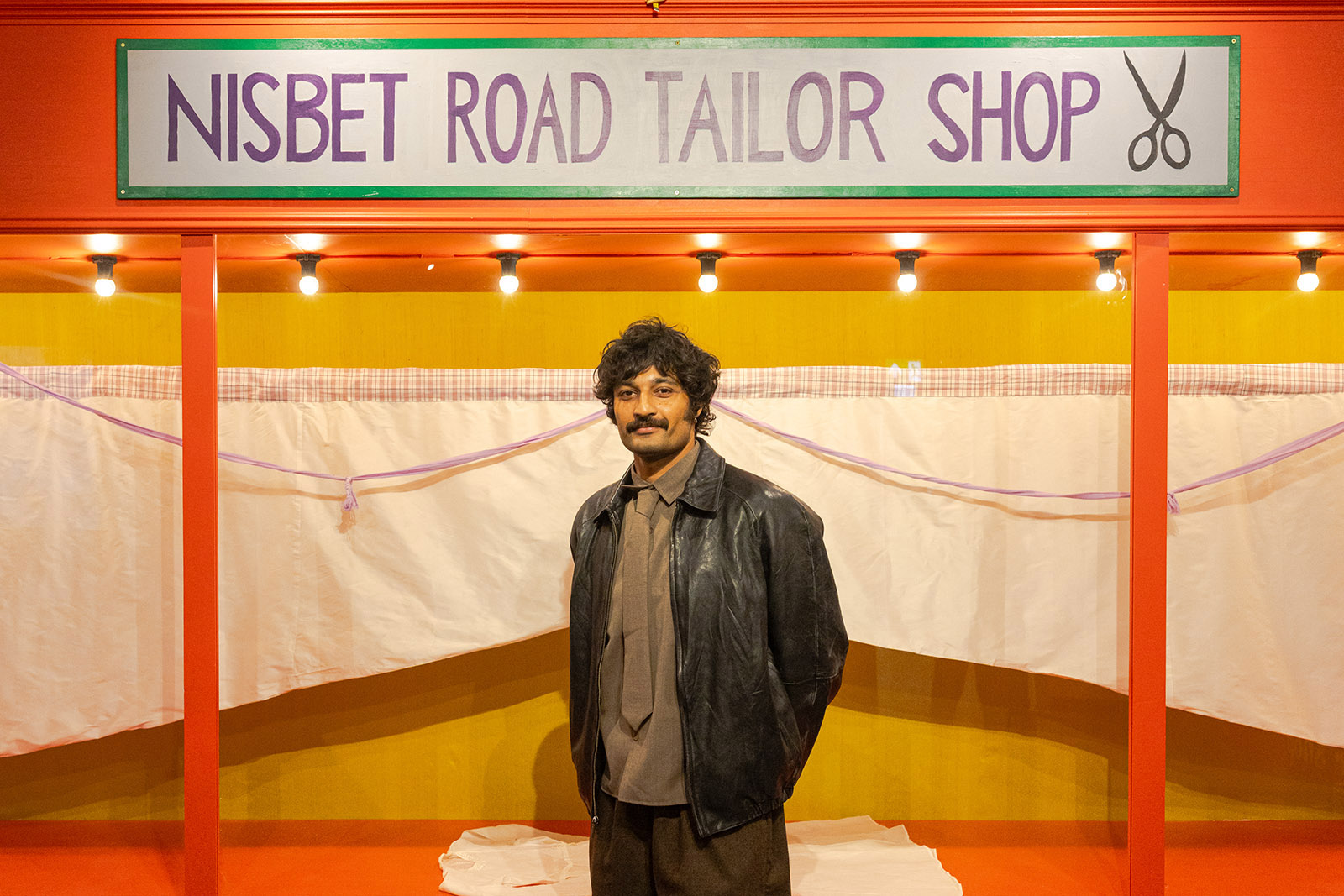
An immersive exhibition by designer Zain Ali highlights the central role skilled craftspeople have played in the fashion industry
Fashion designer Zain Ali is bringing the story of British Asian style to Bradford with Nisbet Road Tailor Shop, a new exhibition that forms part of the 2025 UK City of Culture programme. The immersive show, which combines archival textiles, historical photographs and original garments made by Ali is on display until 23 November at the Loading Bay venue.
Ali, who runs his own fashion label, says that the project’s aim is to spotlight the often-overlooked contributions of South Asian craftspeople to the industry.
“The biggest part of my team is tailors,” he says. “They are the most under-recognised individuals in how we understand and appreciate clothes. This exhibition is really a celebration of tailors.”
In the 1950s and 60s, thousands of South Asian workers took jobs in the textile mills of Bradford and the surrounding area. Later, many opened their own shops, making South Asian clothing for special occasions. In preparation for the show, Ali spent months speaking to them and their families, gathering stories that link the city’s industrial past with its present-day creativity.
Ali’s installation recreates the intimacy and familiarity of a working tailor’s space. Above the mock storefront hang portraits of his parents, giving the space the feel of a shop passed down through generations.
“A lot of tailor shops in Bradford and all over South Asian communities are named after some very sentimental things,” says Ali. “Nisbet Road is the road that I grew up on in Pakistan before I left, so it holds very sweet memories for me.”
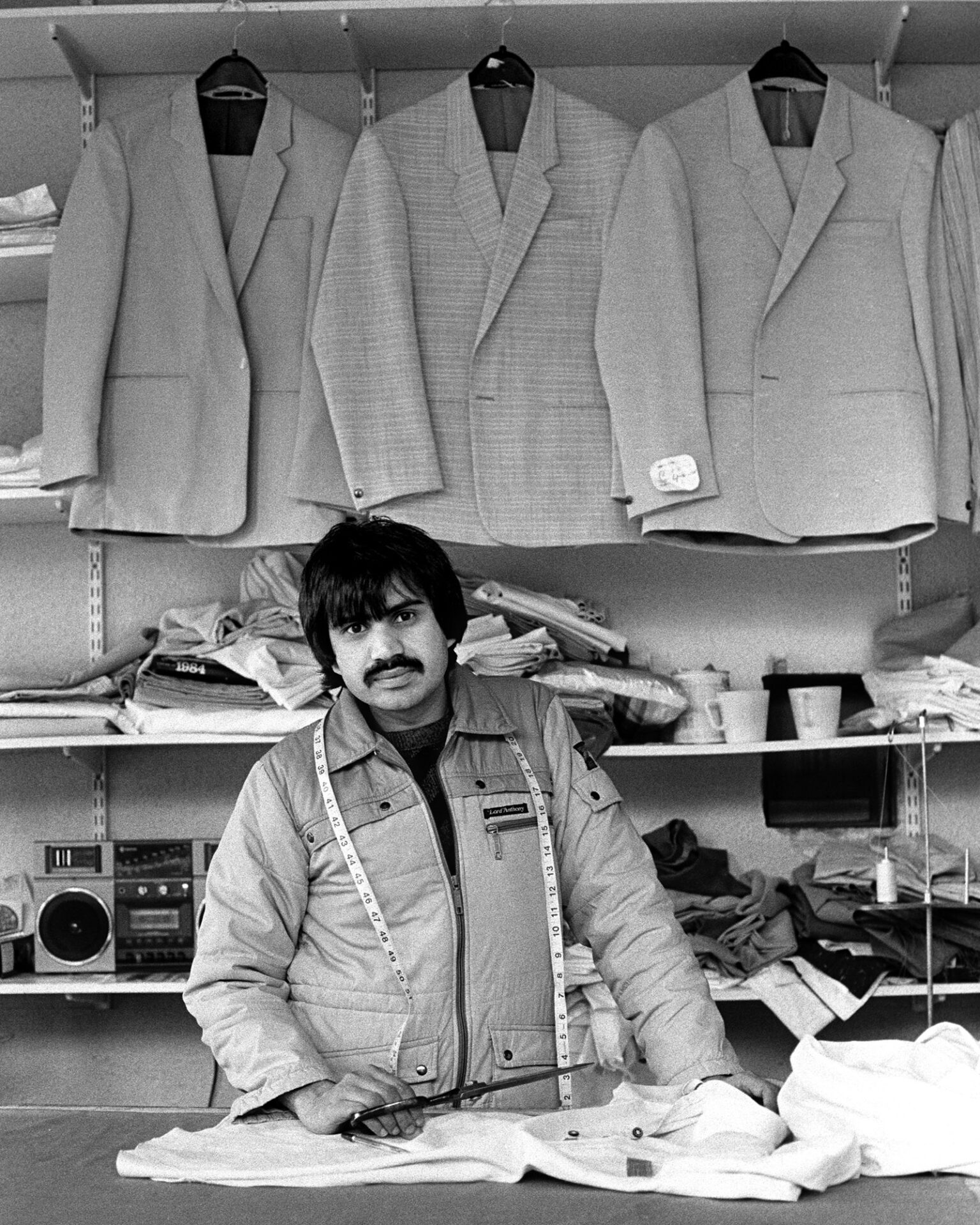
At one end of the gallery, vintage saris and wedding outfits from Cartwright Hall Art Gallery in Bradford are displayed publicly for the first time. “These pieces have never been seen before,” says Ali. “You don’t see them being made the same way anymore. The work of the hand is the best.”
At the other end, Ali’s own contemporary suits, inspired by 1970s portraits from the archive of one of Bradford’s best-known photographic studios, Belle Vue, are on display. The images show the city’s men confidently posing in their finest wide-lapelled suits.
“My dad always used to say that you have to look your best because that’s how you get judged less, or experience less racism.” Clothing, Ali says, “was not just about expression, but about finding respect and dignity regardless of class.”
Shanaz Gulzar, Bradford 2025’s creative director, believes the exhibition captures a wider story about how immigrant communities reshaped British culture. “We didn’t just bring great food,” she says with a smile. “We also brought the industry and entrepreneurial skills that we’ve given back to this country.”
The show takes a tactile approach, inviting visitors to touch the fabrics and feel the craft in each piece. For Ali, that interactivity is a vital way of getting his message across.
“I want visitors to walk away reminding themselves of the immense contribution that South Asian immigrants have made to building the fashion and textiles industry of this country,” he says. “We’re living in a time where all of our identities are constantly questioned, but we’ve already proven ourselves more than enough times.”
The Nisbet Road Tailor Shop exhibition is on at Loading Bay until 23 November.
 Newsletter
Newsletter


